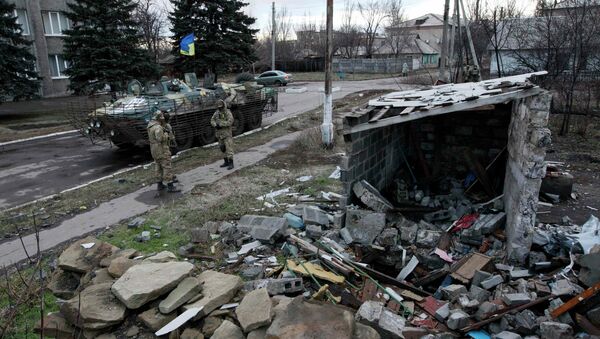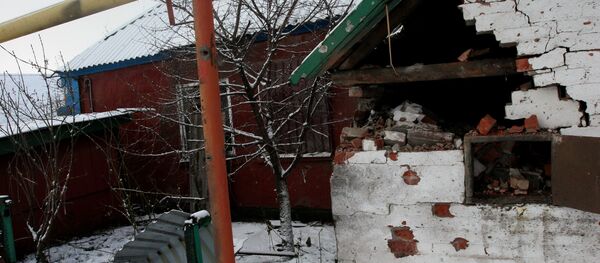"The SMM stands ready to facilitate and support the truce, which should take effect immediately and stay in place for a minimum of three days," Ambassador Ertugrul Apakan said in a statement posted on OSCE website.
The call by Apakan echoes Tuesday's appeal by OSCE Chairperson-in-Office and Serbian Foreign Minister Ivica Dačić to all parties to the Ukrainian conflict to work towards a sustainable ceasefire and ensure the full implementation of the Minsk agreements, signed in September, 2014, in the Belarusian capital, Minsk.
Despite the Minsk ceasefire agreement, fighting continues in Ukraine's southeast, where the eastern Donetsk region has seen a sharp increase in deadly clashes between Kiev-led forces and pro-independence fighters in recent days.
On Wednesday, officials of the self-proclaimed Donetsk People's Republic (DPR) reported uncovering Kiev's plans to attack civilian targets in the town of Debaltseve ahead of this week's Munich Security Conference. Debaltseve, which is located in the Donetsk region, has been at the forefront of increased clashes between local militia and Kiev forces that launched a military operation in Ukraine's southeast last spring.
The United Nations estimates that over 5,300 people have been killed and more than 12,000 have been wounded in Ukraine since the start of the armed conflict.
Russia has been sending humanitarian aid convoys to eastern Ukraine since August. The last convoy delivered over 1,500 metric tons of humanitarian aid to the region, which is facing a major humanitarian crisis after months of fighting left many local residents without food, drinking water and electricity.
In January, the UN High Commissioner for Refugees (UNHCR), also known as the UN Refugee Agency, stressed that the Kiev government's regulations impede access to the southeastern regions of Ukraine and are undermining humanitarian agencies' ability to help people who are suffering as a result of the ongoing conflict.




